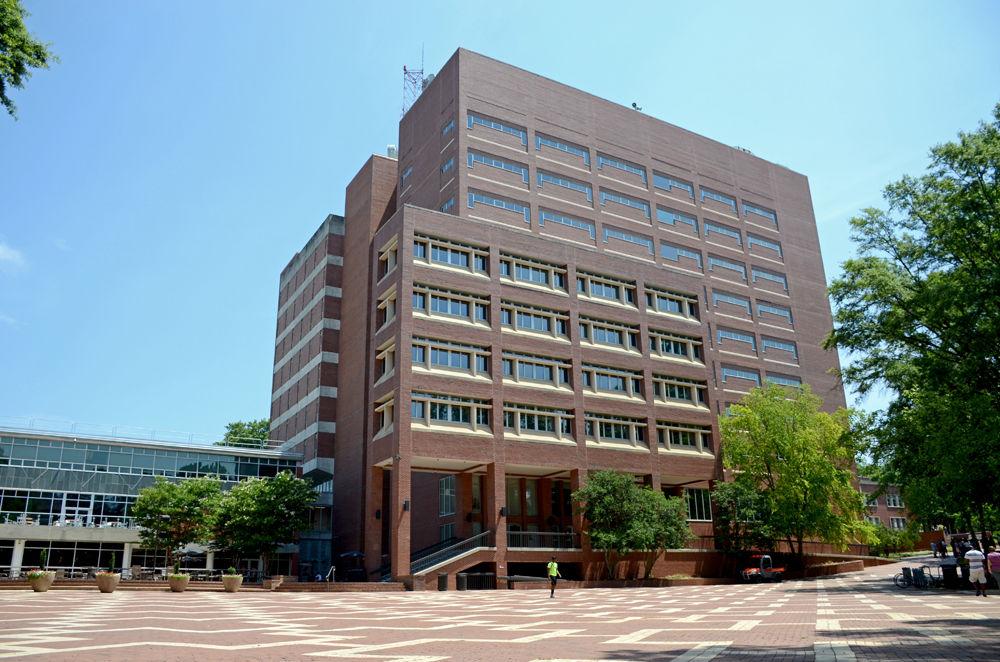NC State University Libraries announced a new department to help students and faculty understand open educational resources: the Open Knowledge Center (OKC), formerly known as the Copyright & Digital Scholarship Center (CDSC).
Offering expertise in copyright, licensing, publishing, open education and more, the OKC is now run by a six-membered staff to involve the campus community in open educational resources. OKC Director and Head of Information Policy Will Cross leads the department alongside Scott Bailey, digital research and scholarship librarian and Micah Vandegrift, open knowledge librarian.
“We can help undergraduate students, particularly, think through the different issues about how to own their own information,” Bailey said. “How they get it out there in an open and accessible manner and participate in the sort of open, scholarly discourses that are available.”
If you haven’t heard of the CDSC, you aren’t alone. Alongside expanding the staff beyond one legal expert, the biggest change to the program was to reevaluate the accessibility of the department, and that meant changing the name.
“Reframing as the Open Knowledge Center helps really say, this is not just the place you go for copyright,” Cross said. “This is about a larger system of open, equitable, public good-focused work that we’re calling ‘open knowledge.’ So it’s a reframe in terms of name that we hope indicates some deeper changes and some newer opportunities that are there.”
With an increased focus on equity and open knowledge, the OKC team is determined to consider all sorts of barriers students may face, from cost to culture to technology. According to Cross, the linchpin idea of the department is to benefit the public regardless of technological divides or other invisible walls that may separate communities.
One of the largest programs that the OKC offers is the OPEN Incubator Program, in which members have the capability to advance a project from an idea to proof-of-concept. Open to students and faculty, the OKC works with University Libraries staff to help participants understand the scope of their research.
The benefits of the OKC reach far beyond the OPEN Incubator Program, however — the wide expertise of the OKC staff allows for deep collaboration and understanding of several aspects of scholarly research.
“We bring a little technical expertise, a little bit of project management,” Vandegrift said. “And then with Will, especially, a lot of understanding of licensing, copyright and intellectual property.”
In fact, the help the OKC offers to faculty can also indirectly benefit students. The pain of overpaying for a six-month lease on a textbook is all too real, but some open educational sources seek to reduce the financial investment students make on textbooks and the like.
“On a little more indirect level, we work with faculty, especially on adopting open educational resources and more open pedagogical practices,” Bailey said. “There’s a payoff for students, because the more faculty who engage with open educational sources, the fewer textbooks and the fewer paid things undergraduates have to go in for.”
Another advantage of the OKC is its approach to helping students understand the opportunities to change out-of-date student resources.
“Open education and open pedagogy in the sense of helping folks design resources that are more… sort of invitational and equitable in different ways,” Cross said, “[If] all of the pictures in a textbook are of white dudes, that’s kind of a problem: how do we have the legal permission and the technical expertise to update the resource in that way?”
As for the upcoming semester, the entire staff of the OKC is looking forward to increasing student outreach and in-person interactions with interested individuals on campus.
“I’d love it if — and we did a little bit of this — the libraries pretty regularly go out on campus and have tables at events or down in Talley,” Vandegrift said. “We’ve talked, Will and I have talked for a while about finding ways to do some of that face-to-face, we are here with you, and you can just walk up and ask questions.”
Bailey agreed, citing the main goal as being to expose students and faculty to the services that the OKC provides.
“If you’re not sure whether we can help you or not but you have ideas, send us an email,” Bailey said. “We’re always happy to meet with people.”













